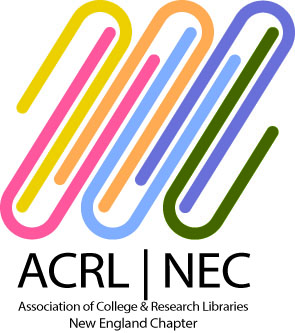Type
Presentation
DOI
https://doi.org/10.7275/hp1e-9509
Session Description
Since 2019, the Mason Library's Center for Research & Writing provides library research services and writing tutoring to undergraduate students and instructors across the curriculum. Staffed by twelve to fifteen undergraduate Research & Writing Tutors, they teach workshops in classes on library research and writing topics, meet one-on-one with students for consultations, staff the drop-in Research & Writing Help Desk, and participate in continuous professional development and training. With only three faculty librarians staffing our library serving 2700 undergraduates and over 300 instructors, the Research & Writing Tutors are essential to providing front-line library services. Adopting a peer-to-peer model has significantly altered the way library services are provided, service data is gathered, and the ways librarians work with students and faculty.
In this presentation I'll answer the most commonly asked questions about our fully integrated service model. I'll share specifics about the curriculum in our training course, Tutoring Research & Writing, and our journey trying various models of training before we developed the course in 2019. Pulling from information and library science literature, writing center studies, information literacy, and composition studies students in the course are encouraged to consider the integration between research and writing processes and to develop their skills to help other students with research and writing. While concepts of privacy and confidentiality, and working with all learners has always been included in our training, increasingly, our curriculum focuses on developing skills such as boundary setting and assertiveness, supporting students in distress, and working with neurodiverse students and universal design principles.
This presentation offers library administration, librarians, and writing center professionals ideas for beginning to integrate services and an example curriculum for training of undergraduate peer tutors of research and writing. Participants will consider pros and cons of the model and what may or may not work at their institution.
Type of Library
College Library
Training Peer-to-Peer Research and Writing Tutors
Since 2019, the Mason Library's Center for Research & Writing provides library research services and writing tutoring to undergraduate students and instructors across the curriculum. Staffed by twelve to fifteen undergraduate Research & Writing Tutors, they teach workshops in classes on library research and writing topics, meet one-on-one with students for consultations, staff the drop-in Research & Writing Help Desk, and participate in continuous professional development and training. With only three faculty librarians staffing our library serving 2700 undergraduates and over 300 instructors, the Research & Writing Tutors are essential to providing front-line library services. Adopting a peer-to-peer model has significantly altered the way library services are provided, service data is gathered, and the ways librarians work with students and faculty.
In this presentation I'll answer the most commonly asked questions about our fully integrated service model. I'll share specifics about the curriculum in our training course, Tutoring Research & Writing, and our journey trying various models of training before we developed the course in 2019. Pulling from information and library science literature, writing center studies, information literacy, and composition studies students in the course are encouraged to consider the integration between research and writing processes and to develop their skills to help other students with research and writing. While concepts of privacy and confidentiality, and working with all learners has always been included in our training, increasingly, our curriculum focuses on developing skills such as boundary setting and assertiveness, supporting students in distress, and working with neurodiverse students and universal design principles.
This presentation offers library administration, librarians, and writing center professionals ideas for beginning to integrate services and an example curriculum for training of undergraduate peer tutors of research and writing. Participants will consider pros and cons of the model and what may or may not work at their institution.


Comments
https://doi.org/10.7275/hp1e-9509